Daily History Lesson – November 25
1839 – A cyclone slammed India with high winds and a 40 foot storm surge, destroying the port city of Coringa (never to be entirely rebuilt again). The storm wave swept inland, taking with it 20,000 ships and thousands of people. An estimated 300,000 deaths result from the disaster.
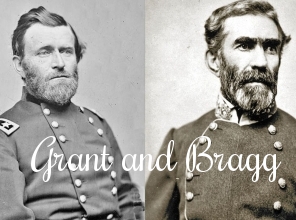
1863 – At Missionary Ridge in Tennessee, Union forces led by General Ulysses S. Grant broke the Siege of Chattanooga by routing Confederate troops under General Braxton Bragg.
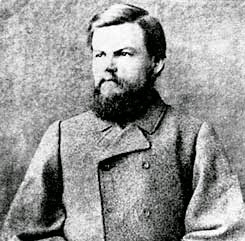
1864 – A group of Confederate operatives calling themselves the Confederate Army of Manhattan, started fires in more than 20 locations in an unsuccessful attempt to burn down New York City.
Their weapons of choice were 144 small vials of “Greek Fire,” a special chemical combination that looked like water but when exposed to air, after a short delay, would ignite in flames. The men were instructed to use the bed in their hotel room, pile it with clothing, rugs, drapes, newspapers, and any other flammable items. Next, they were to empty two vials of the solution on top of the pile. In a few minutes, flames would ignite the pile. This delay would give them plenty of time to escape unnoticed before the fire started.
After starting one fire, the man would then proceed to the next location and do the same. Each man would be capable of setting off several fires blocks from each other. Most of the fires fizzled out on their own or failed to ignite completely. The Confederates forgot to open the windows in any of the rooms, which robbed the flames of a steady supply of oxygen.
All the operatives escaped prosecution except for Robert Cobb Kennedy (shown above), who was apprehended in January 1865 while trying to travel from Canada to Richmond, VA. He was tried, convicted, and executed on March 25, 1865, at Fort Lafayette in New York harbor.
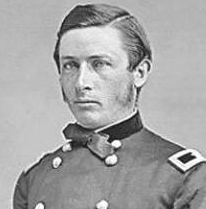
1876 – U.S. troops under the leadership of General Ranald Mackenzie destroyed the village of Cheyenne living with Chief Dull Knife on the headwaters of the Powder River. The attack was in retaliation against some of the Indians who had participated in the massacre of Custer and his men at Little Bighorn.
At dawn, Mackenzie and over 1,000 soldiers and 400 Indian scouts opened fire on the sleeping village, killing many Indians within the first few minutes. Some of the Cheyenne managed to run into the surrounding hills where they watched as the soldiers burned more than 200 lodges-containing all their winter food and clothing, and then cut the throats of their ponies. When the soldiers found souvenirs taken by the Cheyenne from soldiers they had killed at Little Bighorn, the assailants claimed justification for their attack.
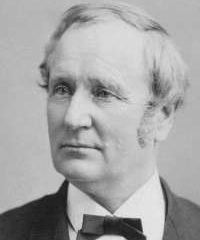
1885 – After a prolonged illness, Thomas A. Hendricks, the 21st Vice President of the United States, died less than nine months after his inauguration as VP under President Grover Cleveland.
1926 – The deadliest November tornado outbreak in U.S. history struck on Thanksgiving Day. Twenty-seven twisters were reported in the Midwest, including the strongest November tornado, an estimated F4 that devastated Heber Springs, Arkansas. There were 51 deaths in Arkansas alone, with 76 deaths and over 400 injuries in all.

1940 – Woody Woodpecker made his first appearance in the cartoon, Knock Knock. The idea for Woody came during producer Walter Lantz’s honeymoon with wife, Gracie, in Sherwood Lake, CA. A noisy woodpecker outside their cabin kept the couple awake at night, and when a heavy rain started, they learned that the bird had bored holes in their cabin’s roof. Lantz wanted to shoot the bird, but Gracie suggested that her husband make a cartoon about him.

1941 – British battleship HMS Barham was sunk by a German submarine. The torpedoes were fired from a range of only 750 yards providing no time for evasive action. As the Barham rolled over to port, her magazines exploded and she quickly sank. The explosion was caught by cameraman John Turner, who was on the deck of a nearby ship. Out of a crew of approximately 1,184 officers and men, 841 were killed.
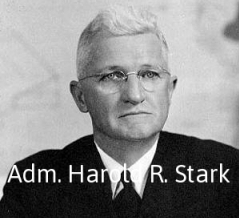
1941 – Adm. Harold R. Stark, U.S. chief of naval operations, told Adm. Husband E. Kimmel, commander of the U.S. Pacific Fleet at Pearl Harbor, that both President Roosevelt and Secretary of State Cordell Hull thought a Japanese surprise attack was a distinct possibility.
War worries had struck because of an intercepted Japanese diplomatic message, which gave November 25 as a deadline of sorts. If Japanese diplomacy had failed to convince the Americans to revoke the economic sanctions against Japan, “things will automatically begin to happen,” the message related. Those “things” were becoming obvious, in the form of Japanese troop movements off Formosa (Taiwan) apparently toward Malaya.
In fact, they were headed for Pearl Harbor, as was the Japanese First Air Fleet.
Despite the fact that so many in positions of command anticipated a Japanese attack, especially given the failure of diplomacy (Japan refused U.S. demands to withdraw from both the Axis pact and occupied territories in China and Indochina), no one expected Hawaii as the target.

1944 – Judge Kenesaw Mountain Landis, the first commissioner of baseball, died at the age of 78. Two weeks after his death, the man given the task of cleaning up baseball after the Black Sox Scandal of 1919 – which he accomplished by ruling with an iron hand – was voted into the Baseball Hall of Fame by a special committee vote.
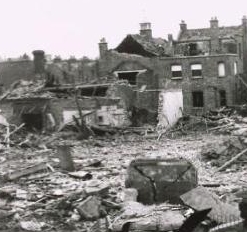
1944 – A German V-2 rocket hit the roof of a Woolworth’s store in Deptford, London, England. The Royal Arsenal Co-operative Society Store next door and a line of people waiting for a tram in the street outside were caught in the inferno. A total of 168 people died.
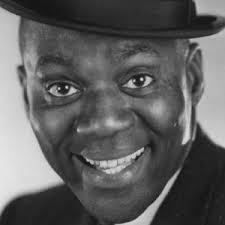
1949 – Bill “Bojangles” Robinson, tap dancer extraordinaire and actor best known for his films with a very young Shirley Temple (The Little Colonel, The Littlest Rebel, Rebecca Of Sunnybrook Farm) died of heart failure at the age of 71.
Despite being the highest-paid African American performer of the first half of the twentieth century, earning more than $2 million during his lifetime, Robinson died penniless due to his many, many acts of generosity to those in need. His funeral was arranged and paid for by longtime friend and television host, Ed Sullivan.
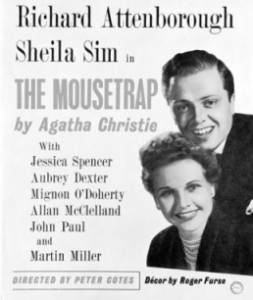
1952 – The Mousetrap, a murder-mystery written by the novelist and playwright Agatha Christie, opened at the Ambassadors Theatre in London. The crowd-pleasing whodunit moved next to door to St. Martin’s Theatre in 1974 and would go on to become the longest continuously running play in history, with more than 10 million people to date attending its more than 26,000 performances in London’s West End.
Christie herself did not expect The Mousetrap to run for such a long time. In her autobiography, she recalled saying, “It won’t run that long. Eight months perhaps. Yes, I think eight months.”



1963 – Three days after his assassination in Dallas, Texas, President John F. Kennedy was laid to rest with full military honors at Arlington National Cemetery. Hundreds of thousands of people lined the streets of Washington to watch a horse-drawn caisson bear Kennedy’s body from the Capitol Rotunda to St. Matthew’s Catholic Cathedral for a requiem Mass. The solemn procession then continued on to Arlington National Cemetery, where leaders of 99 nations gathered for the state funeral. Kennedy was buried on a slope below Arlington House, where an eternal flame was lit by his widow to forever mark the grave.
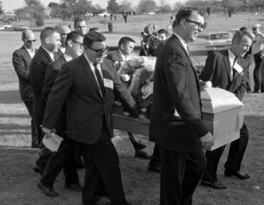
1963 – Hours after President John Kennedy was buried, Lee Harvey Oswald – his alleged killer – was buried in Shannon Rose Hill Memorial Burial Park in Fort Worth.
Dozens of police, federal agents and members of the press were present but there were no mourners, other than Oswald’s family: mother Marguerite, brother Robert, widow Marina and her two daughters, June Lee, 2, and infant Rachel. With no mourners present to act as pallbearers, it was left to members of the media to carry Oswald’s casket to his grave.

1970 – World-renowned Japanese writer Yukio Mishima committed suicide after failing to win public support for his often extreme political beliefs. Obsessed with what he saw as the spiritual barrenness of modern life, Mishima preferred prewar Japan, with its austere patriotism and traditional values, to the materialistic, westernized nation that arose after 1945. In this spirit, he founded the “Shield Society,” a controversial private army made up of about 100 students that was to defend the emperor in the event of a leftist uprising.
On this date, Mishima delivered to his publisher the last installment of The Sea Of Fertility, his four-volume epic on Japanese life in the 20th century that is regarded as his greatest work. He then went with several followers to a military building in Tokyo and seized control of a general’s office. There, from a balcony, he gave a brief speech to about 1,000 assembled servicemen, in which he urged them to overthrow Japan’s constitution, which forbids Japanese rearmament. The soldiers were unsympathetic, and Mishima committed seppuku (ritual suicide) by disemboweling himself with his sword.
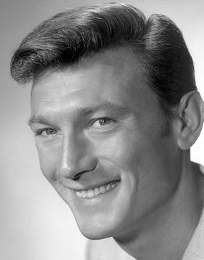
1973 – Actor Laurence Harvey (The Alamo, The Manchurian Candidate, and Room At The Top, which earned him an Academy Award nomination for Best Actor) died from stomach cancer at the age of 45.
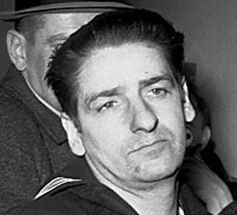
1973 – Albert DeSalvo, who confessed to being the Boston Strangler, the murderer of thirteen women in the Boston area in the 1960s, was found stabbed to death in the Walpole State Prison infirmary. Robert Wilson, a fellow inmate, was tried for DeSalvo’s murder but the trial ended in a hung jury. No one was ever convicted for his murder. The case remains unsolved.
DeSalvo, who was serving a life sentence, was never imprisoned for the murders, but rather for a series of rapes. His murder confessions – which he later recanted – have been disputed and debate continues as to which crimes DeSalvo actually committed.
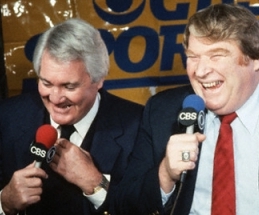
1979 – Pat Summerall and John Madden called an NFL game on CBS for the first time. They would go on to work together for 22 years and become one of the most well-known partnerships in TV sportscasting history.
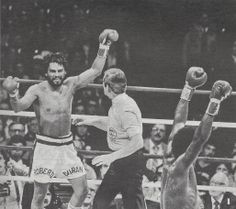
1980 – Sugar Ray Leonard regained boxing’s welterweight title when his opponent, reigning champ Roberto Duran, waved his arms and walked away from the fight in the eighth round. “No más, no más,” Duran told the referee. “No more box.” He’d had cramps in his stomach since the fifth round, he said, and they’d gotten so bad he could barely stand up.
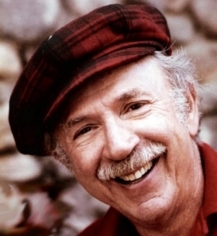
1981 – Actor Jack Albertson (Man Of A Thousand Faces, Kissin’ Cousins, The Poseidon Adventure, Willie Wonka & The Chocolate Factory, The Subject Was Roses {for which he earned an Academy Award nomination for Best Supporting Actor}, and of course, television’s Chico And The Man) died of cancer at the age of 74.
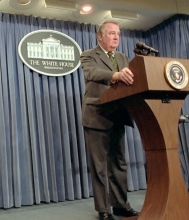
1986 – Three weeks after a Lebanese magazine reported that the United States had been secretly selling arms to Iran, Attorney General Edwin Meese revealed that proceeds from the arms sales were illegally diverted to the anti-communist Contras in Nicaragua.
Meese announced that the arms sales proceeds were diverted to fund the Contras who were fighting a guerrilla war against the elected leftist government of Nicaragua. The Contra connection caused outrage in Congress, which in 1982 had passed the Boland Amendment prohibiting the use of federal money “for the purpose of overthrowing the government of Nicaragua.”
The same day that the Iran-Contra connection was disclosed, President Reagan accepted the resignation of his national security adviser, Vice Admiral John Poindexter, and fired Lieutenant Colonel Oliver North, a Poindexter aide. Both men had played key roles in the Iran-Contra operation. Reagan accepted responsibility for the arms-for-hostages deal but denied any knowledge of the diversion of funds to the Contras.
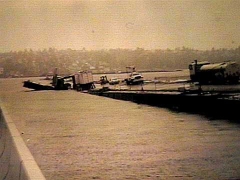
1990 – After a howling rainstorm on Thanksgiving Day, Washington state’s historic floating Lacey V. Murrow Memorial Bridge broke apart and fell to the bottom of Lake Washington, between Seattle and its suburbs to the east.
The 6,600-foot-long bridge, made of 22 floating bolted-together pontoons, was in the process of being converted from a two-way road to a one-way road. The state highway department alleged that construction crews had left the pontoons’ hatches open, leaving them vulnerable to the weekend’s heavy rains and large waves. For its part, the construction company refused to accept responsibility for the disaster, countering that “the probable cause of the failure was progressive bond slip at lapped splices in the bottom slab due to failure in bond.” In the end, the construction company agreed to pay the state $20 million.
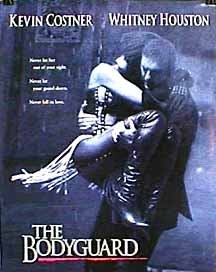
1992 – The Bodyguard, starring Kevin Costner and Whitney Houston, premiered in the U.S. Although it would become the second highest-grossing film of 1992 (worldwide), several movie critics, Owen Gleiberman being one of them, trashed the film. Gleiberman said, “To say that Houston and Costner fail to strike sparks would be putting it mildly. It’s like watching two statues attempting to mate.”
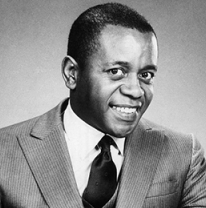
1998 – Comedian Flip Wilson died of liver cancer at the age of 64.

1999 – The United Nations General Assembly passed a resolution designating November 25 the International Day for the Elimination of Violence Against Women. The resolution, which was introduced by the Dominican Republic, marked the anniversary of the death of three sisters, Maria, Teresa, and Minerva Mirabel, who were brutally murdered there in 1960. While women in Latin America and the Caribbean had honored the day since 1981, all UN countries did not formally recognize it until 1999.
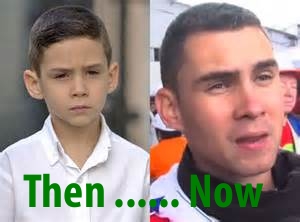
1999 – Five-year-old Elian Gonzalez was found clinging to an inner tube off the coast near Fort Lauderdale, Florida. The boy, his mother, stepfather, and eleven other Cubans had boarded a small boat in Cuba and attempted to cross the ocean to the U.S. Elian was one of three to survive (his mother and stepfather both drowned). He lived with relatives in Miami until he was seized by the INS in an early morning raid on April 22, 2000. He returned to Cuba with his father on June 28.
2003 – Yemen arrested Mohammed Hamdi al-Ahdal, a top al-Qaida member suspected of masterminding the 2000 bombing of the USS Cole and the 2002 bombing of MV Limburg, a French oil tanker, off Yemen’s coast.
At his 2006 trial, al-Ahdal was never charged in the Cole or Limburg bombings. Instead, he was convicted of handling substantial funds for al Qaeda, sentenced to three years time already served and released.
Compiled by Ray Lemire ©2015 RayLemire.com. All Rights Reserved.